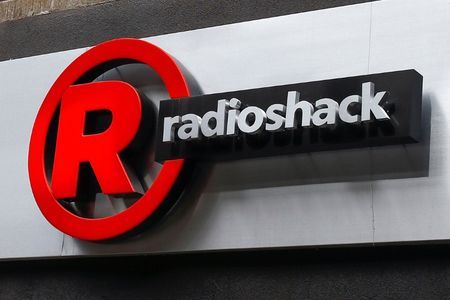As horrible as the pandemic is in terms of loss of life and general damage to people’s existence, you should have learned some pandemic financial lessons. Here are some financial lessons the pandemic should have taught you, really all of us. This post was inspired by my fellow author and sometimes contributor here, Gregory Lamb. He recently created a post on why you should never get a car loan on another blog because he had some access issues here.
Carrying a Credit Card Balance is Not a Lifestyle
While a credit card does make life and many purchases easier, you are never supposed to carry a balance as a matter of course. Somewhere along the line people thought “pay it off over time” was the same as “saving to buy it.” They are wrong. Despite what the commercials tell you, if you cannot pay cash for it, you’re not worth it.
The pay over time was for emergency situations, not that European vacation that you are still paying off five years later. It was for your car breaking down at the ass end of nowhere or that emergency room trip and your health insurance having a $5,000 deductible.
You can’t afford to do something just because you can still afford the minimum payment on your card.
Many people have been out of work for more than six months thanks to the pandemic. For most unemployment will or has run out. You still need to put gas in your tank and you still need to purchase groceries so it is understandable if the balance is climbing now. This is why you are supposed to have a couple of credit cards, for the really bad times.
$200/month for Television is Nuts!
I have talked to so many people who were so proud of themselves because they got rid of cable/satellite television. Those teaser rates sucked them into huge and sometimes ballooning monthly fees. Those ads you see about people paying $200/month or more for television are real, not made up. A sports package, a movie package, mystery monthly fees add up quick.
Yep, they dumped cable television packages for cable Internet at around $50/month and were so proud of themselves. Then the “free” streaming services started wanting $7.99 here, $8.99 there, $14.99 for HBO Max because they wanted to watch Game of Thrones. One at a time these things piled on. Every one of them auto-billing to your credit card. Now, instead of one massive bill from the cable company you are getting 20-50 monthly charges for services you probably don’t even use anymore. All of them are just under $20 so nothing stands out as big when you bother to look at your statement.
One friend of mine whose daughter was now leaving for college confided that he recently had this conversation with his family. They were well over $200/month in streaming services alone. Then you have the $50/month Internet. With that many streaming services they probably had one of the $100/month higher bandwidth connections.
With very few exceptions each one of those streaming services got onto the credit card because there was “one thing” someone wanted to watch. Once signed up, nobody bothered to cancel. That my dear reader, is how streaming became a $2.1 billion business. By relying on the fact people are lazy and the fact people rarely scrutinize charges well under $20 on their credit card statement.
That Six Months Expenses Advice Was a Myth
Over three decades ago I was told you had to save up a minimum of six months expenses before hanging your shingle out as a consultant. It was a myth then and it is a myth now. That was a fuzzy thing people used to weasel out of actually doing it.
What happens with a fuzzy thing like that is you leave lines off the spreadsheet just like an MBA. Oh, you may dutifully add up your grocery receipts for the past six months, but you will leave off eating lunch out every day and going out for supper at least twice per week. Your groceries are low because your entertainment expenses were high.
People also leave out their $40 Starbucks runs and everything else they have auto-billing to their credit cards. (See previous rant about what you pay for television.) Many people forget to add in what they actually spend for health insurance and health care. Yes, that’s a monthly expense.
Nobody would listen to an actual hard number because it would be too high, so advice givers gave this fuzzy mythical advice. I’m going to give you a hard number.
You need at least $30K in safe-ish cash-like investments put aside.
Roland Hughes
Stock market goes up and down. Some mutual funds are a bit safer than others. There needs to be a barrier between you and this money. I like the mutual fund thing for impulse buyers because you cannot convert those shares to cash for several days. Your sale happens at close of trade and then you have 2-8 days for clearing.
Dividend Investing is Back in Vogue
It’s true, there are no forever stocks anymore. The same type of people who think Amazon will never go under also through Sears would never go under. It will happen. In any form of retail, once you piss off enough consumers, you go under.
Having said that, an investing philosophy I adopted rather late in the game is one that is back in vogue, dividend investing. Dreaming of being whoever got in on the ground floor of whatever stock is hot this week makes suckers out of all of us. Chasing returns makes you dead broke fast. Just ask everyone who had their retirement in Enron stock.
Most dividend investing fans talk about re-investing. Many mutual funds do this automatically for you. Over a really long haul, assuming the fund manager isn’t shit and doesn’t turn to shit, this can snowball in your favor. You put your however many thousand minimum in and get, say, 27 shares. Every month or quarter there are dividends paid “to you” that you never get to touch because they are automatically re-invested in new shares.
Assuming you don’t get stuck with an idiot for an active manager, there is a tipping point in the future. You start getting another ten shares each time. Then it gets to twenty, etc. etc. That assumes you keep adding some money each year like your annual retirement contribution.
Personal Dividend Investing
For a retirement account that is fine. Even better if you have low cost indexed funds so you don’t have to worry about getting stuck with an idiot fund manager, you just have to worry about the market in general.
Dividend investing in a personal portfolio is a different animal. You are looking for stocks and funds that pay money directly to your brokerage account. You are looking for the best dividend, not the highest.
Your first personal dividend investing goal is to accumulate $1000/month in dividends.
Roland Hughes
Your second goal is to bump that to $2000/month. I will leave the third goal to your imagination, but it is a straight line from there. Ultimately you want a stable $6-$7,000/month in dividends.
That first $1000 can hurt! This is especially true if you chase high dividends instead of best dividends. Everyone chased the high dividends. Any stock paying north of $3/share/quarter dividend is priced way north of $60/share. Wealth management and mutual fund managers bulk up on those big dividend paying stocks to make their job easier.
Pennies to Dollars Rule
Best dividends are a little easier to find, at least when it comes to monthly payers. You just have to apply the pennies to dollars rule.
stock_price < monthly_dividend * 100
Roland Hughes
It’s not sexy and it is not rocket science. For young investors it is a fantastic rule and for old investors not so bad. In less than ten years, assuming the company keeps paying the dividend, the shares you buy using that formula are free. The dividend has bought them for you.
There is a stock paying a monthly dividend of 0.23/share right now. Professional money has pushed that share price up to almost $60/share. It doesn’t have a prayer of ever passing this rule.
Tiny monthly (and even quarterly) dividend payments don’t interest professional money. There is one stock I hold, no I won’t name it, that is currently paying 0.035/share/month and most days of the week it passes this rule. Other days it does not. You have to buy on dips. If you want to take the huge gamble of relying on it alone for your $1000/month you would also need over 28,571 shares. (That’s why professional money chases the big dividends.)
No matter what size you are, you need to spread your dividend sources around. An ETF here, mutual fund there (some do pay direct to you), and quite a few monthly stocks that pass the rule.
I don’t have a really good rule for quarterlies. During the pandemic I’ve just been looking for ones that have been beat to shit in both dividend and share price. If five years of their pre-pandemic quarterly dividend will pay for the stock at the current price, I put it on my think about it list. If one year of their pre-pandemic quarterly dividend will pay for the stock today I really look at “do they have a chance” post-pandemic. Admittedly both of these are rank speculation.
You Need a Real 401K
Most financial planners get apoplectic when one mentions touching a retirement account, but it’s a wee bit better than carrying a big chunk of 20+% interest rate debt on your credit cards. The trouble is you generally cannot borrow from an employer sponsored 401K. Those rules temporarily changed with the CARES Act, but you need to consult professionals.
I have a self-directed 401K just for this reason. If push comes to shove you can take a loan out. Paying interest to your retirement account is better than paying interest to your credit card companies.
The timing of your loan makes a difference too. The stock market is artificially high. Whatever funds/stocks you hold in your 401K, they should be artificially high as well . . . unless you are holding GE or crude oil based stocks as they sucky-poo right now. If you take a loan (and you can’t take it all) out now while the market is artificially high you will have to sell fewer shares. Paying it back as cash until the market crashes allows you to buy on the down market.
No, that’s not a great plan, just the best of a bad situation.
A Stock Market Crash is Coming
There is nothing that can be done to avoid it. The RepubliTrump Recession will explode into a Great Depression. The trade war with China really cut two legs off of the three legged stool without getting anything in return. We were headed down that path as soon as the trade war started. Actually we were headed down that path when someone with zero negotiating skills through they needed to change the name of NAFTA. Now we have an even worse deal.

To really understand what is coming now you have to rent The Big Short and really watch it. Organized crime between Wall street bankers and credit ratings agencies to brand mortgage backed securities backed by absolutely worthless mortgages as “investment grade.” If you are old enough to read this you lived through that tanking of the global economy.
What is going on right now?
Moratorium on evictions and foreclosures.
You gotta realized that the moratorium is going to end. When you finally go back to work you aren’t suddenly going to have the 8-15 months of back-rent/mortgage you owe. The Moratorium cannot go on forever.
Here’s the other thing most people don’t realize.
Just because there is a moratorium on evictions and foreclosures, it doesn’t mean the paperwork can’t be filed. Banks and landlords have been stacking the paperwork at the courthouse. When the courts finally can begin processing these cases, there will be an 8+ month backlog. Evictions and foreclosures will be happening wholesale.
While you are pondering that, please ponder just how much revenue those “mortgage backed securities” are generating when nobody has paid the mortgage for 8+ months. The global economy is about to take the exact same hit it took when Jamie Dimon was engaging in mortgage fraud with wanton abandon. Y’all saw how that turned out. This will be one of those pandemic financial lessons we all should have seen coming.
Paycheck to Paycheck is Not a Valid Lifestyle
One of the hardest to face pandemic financial lessons has to be the reality that living paycheck to paycheck is not a sustainable lifestyle. There was a time when someone who was trained at one of the higher end bar/restaurant chains could skate by for many years living the paycheck to paycheck lifestyle. Usually having two to three roommates. If you got canned or sick of one place, you could get hired at another one just up the street in any major city.
That time is gone. It isn’t coming back. If you only learn one of these pandemic financial lessons, learn this one. It isn’t coming back. If you learn nothing else from the pandemic learn that you have to put money away.
Leasing Everything Was Always a Bad Idea
This is actually stuck in my head from a rant Greg had some years back. He was sick of seeing all of those Portlandia Hipsters who rent and lease everything, sending their credit card companies five bucks over the minimum at the end of the month. In the end I guess this is a continuation of the paycheck to paycheck topic above. Hipsters tried to make it cool.
So, to make this one of the pandemic financial lessons we have to ask the question:
What happens to your leased vehicle when you’ve been out of work for six months?
We can even extend the idea behind the post from Greg that sent me down this train of thought by asking a related question:
What happens to that vehicle you just had to have and are making payments on when you are out of work for six months?
I think we can all do the simple math here. If you were living paycheck to paycheck and found yourself on unemployment, you were instantly falling behind on something because unemployment is generally a lot less than your paycheck.
Let us continue just a tad farther down this line of thought because this is what I wanted to get to when I started writing after reading Greg’s post.
If you get a job that requires you to come into the office, how will you get to work? The leasing/finance company came and got your special ride. Just as well because you didn’t have insurance anymore anyway. Just how are you going to get to work?
You are Supposed to Save 40% of Your Paycheck
Of all the pandemic financial lessons, this is the one everybody’s grandparents knew. Advertising agencies and credit card companies lead everyone astray. You are supposed to save 40% of your paycheck, living on only 60% of your income.
If you can’t afford it then you aren’t supposed to have it now.
Of all the pandemic financial lessons this is going to be the toughest one for the younger generations to take to heart. You’ve been told most of your lives that you can have it now and pay for it later. It’s always been a lie. You only got away with the lie if you could always work.
When the courts finally open back up for “financial cases” you are going to see personal bankruptcies at an all-time high. Evictions and foreclosures are going to happen at a rate we haven’t seen before. Honestly, the “mortgage crisis” Jamie Dimon and his friends caused will seem small. Even good credit risks are going to be foreclosed on now.
Six plus months without a job and without savings wipes you out. Even if you had savings it was probably nowhere near enough because nobody told you it had to be at least $30K. You fudged the “six months” advice putting just enough away (if any at all) for what you wanted to believe your expenses were and it was all gone in a couple of months.
I do not know how economists can be predicting 4% growth in 2021 because this ticking time bomb is going to go off. If they extend the moratorium to the end of 2021, then it detonates in 2022. People aren’t going to suddenly earn enough to make double mortgage/rent payments to get caught up. The mortgage side of things will have dramatic interest rate escalation. Rent probably has all kinds of late fees and interest as well.
The only way to stop this time bomb from detonating spectacularly is to implement the Yang Gang’s $2000/month UBI. Yeah, that link says $1000 but there have been others pushing for $2000. For at least all of 2021 that would have to happen just to give people a chance.





3 thoughts on “Financial Lessons the Pandemic Should Have Taught You – Pt. 1”